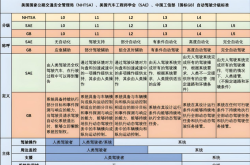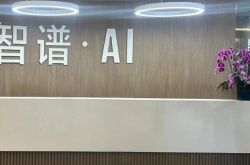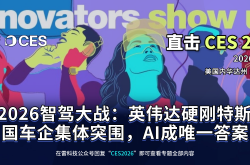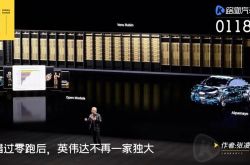Li Shufu, Zeng Qinghong, and Yu Chengdong Criticize Price Wars! Wang Chuanfu: Competition is Normal
![]() 06/11 2024
06/11 2024
![]() 723
723
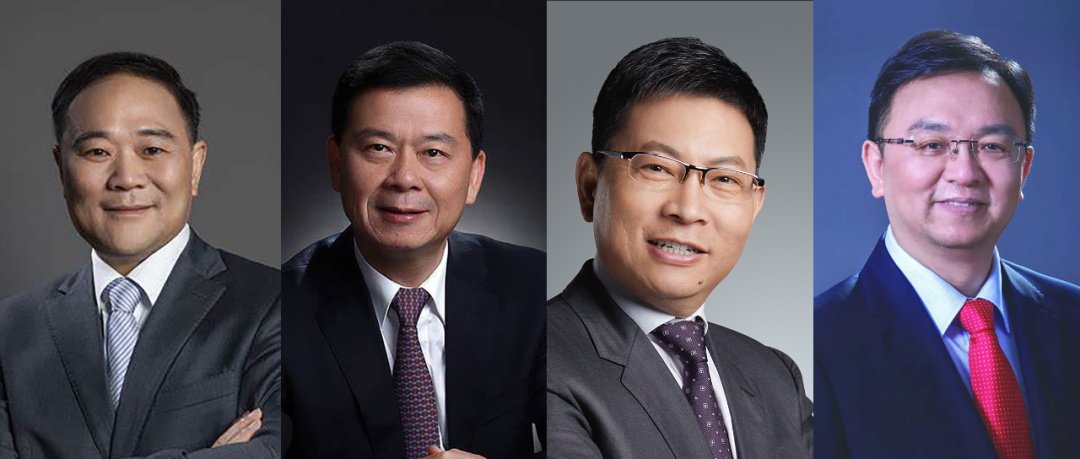
Is price competition a market rule or disorderly competition?
Editor: Xiao Ying
Recently, several influential figures in the automotive industry have spoken out on price wars and market competition in the automotive industry.
The automotive industry is undergoing a new round of reshuffling, driven by electric and intelligent technologies, leading to an upgrade in automotive product capabilities. Meanwhile, due to the dense layout of homogenized automotive products, the price war in the automotive market has spread from the high-end market to the mid-to-low-end market.
Traditional automotive products, lacking technological charm, are in a very passive position in this war of internal competition and have to reduce prices to compete for the market.
The competition in the new energy vehicle market is also intense, and it is often necessary to upgrade and reduce prices to outperform competitors, which is also very painful.
This has led to recent outspoken statements from Yu Chengdong, Wang Chuanfu, Li Shufu, Zeng Qinghong, and other influential figures.
01
Disorderly price wars will lead to counterfeiting and fraud
In this debate, there are two camps, one of which is fiercely attacking price wars.
The first to address this topic was Yu Chengdong, Chairman of the BU for Intelligent Automotive Solutions at Huawei.
First, he severely criticized the current situation of low-price competition in the domestic automotive market, arguing that low prices mean low costs, which not only reduces the quality and user experience of vehicles but also erodes automakers' profits, putting them in a difficult situation until they are eliminated by the market.
At the same time, he believes that automakers engaging in price wars is a sign of incompetence, indicating that their models lack sufficient product strength to support them, forcing them to join the ranks of low-price competition.
He also stated that automakers should continuously improve the market competitiveness of their products, learn to enhance the value of their vehicles, and thereby increase the added value of their products, rather than solely focusing on price reductions to capture market share.
Following this, several influential figures spoke at the 2024 China Automotive Chongqing Forum.
Li Shufu, Chairman of Geely Holding Group, stated that the degree of internal competition in China's automotive industry is the highest in the world, with price wars getting more intense. He believes this phenomenon is both good and bad.
He argues that if marketization is high, laws are sound, law enforcement is strict, and competition is transparent and fair, this is a good thing. Otherwise, it is a bad thing. Endless internal competition and简单粗暴的价格战 (brutal price wars) will lead to cutting corners, counterfeiting and fraud, and irregular competition.
Zeng Qinghong, Chairman of GAC Group, spoke even more strongly.
He believes that profitability is a key goal of business operations, and profitable enterprises can better provide jobs for society and pay taxes.
Now, excessive internal competition in the market has led to operational difficulties for many enterprises, resulting in layoffs, including at GAC Group.
"Will this continue to benefit society and the country? We should have a broad perspective and a long-term strategic view, rather than focusing only on the current competition."
He believes that competition is not a problem, as it is a market rule, but it should be rational.
He cited the example that among the 18 major listed automakers in China in 2023, only 12 achieved profitability, and the combined net profit of these 12 companies did not exceed 90 billion yuan. In contrast, Toyota's net profit in 2023 was 229 billion yuan, more than twice the combined total of the 12 Chinese automakers.
He even expressed his hope that the government would study the issue of price wars and consider implementing "equal rights for oil and electricity" in terms of policy support when the market share of new energy vehicles reaches 50%.
02
Competition leads to prosperity
Compared to the passionate statements of the previous three, Wang Chuanfu, Chairman of BYD, was particularly calm. He stated that the core of a market economy is competition, leading to prosperity.
"This is a natural law, and there is no need to be anxious. All entrepreneurs should embrace and participate in this competition and sail out to sea through competition."
Wang Chuanfu further noted that the essence of competition should be innovation. The core of the new energy revolution is the replacement of traditional fuel vehicles with new energy vehicles, which is essentially a technological revolution, and the foundation of innovation is talent.
Traditional fuel vehicles have had 100 years of development, while new energy vehicles have undergone a process of innovation over the past decade, during which the integration of various technologies is particularly important.
BYD has taken the lead in establishing a highly vertically integrated platform, breaking down barriers between industries and allowing engineers to innovate highly flexibly in a highly vertically integrated environment.
When the automobile was first invented, companies like Mercedes-Benz, BMW, and Ford were vertically integrated, which enabled them to iterate quickly, form innovations quickly, and establish industrial chains.
Li Yunfei, General Manager of BYD Brand and Public Relations Department, added from a cost perspective:
He stated that a significant drop in raw material prices has made price reductions possible. If the decrease in raw material costs for automakers is not reflected in product pricing, it is unethical to consumers.
Internal competition is like playing cards, and enterprises should do what they can. This round may be difficult, but there are many more rounds to come. The automotive industry is a long-distance race, so don't get angry and upset.
Compared to the confrontation between several parties, there were also moderate statements.
Zhu Huarong, Chairman of Changan Automobile, stated that competition has evolved from cost, price, and technology to executives, users, services, and traffic.
Internal competition itself implies the pursuit of excellence, and this competition will elevate the height of Chinese brands and maximize user benefits. Internal competition is also a normal process of "good money driving out bad," the best way to promote the rapid return of the industry to healthy competition.
Li Bin, Chairman of NIO, also believes that internal competition in the automotive industry is an inevitable result of market competition.
However, he also stated that the success of China's automotive industry is collective, and it is impossible for only one or two companies to remain. Therefore, cooperation should not be forgotten, especially in areas involving infrastructure.
Li Xueyong, Deputy General Manager of Chery, also believes that it is impossible to avoid price wars, as they are a market economy behavior. To a certain extent, they have also helped Chinese brands rise and are a manifestation of the value of Chinese brands in technological progress and cost advantages.
He also stated that sacrificing value as a prerequisite for price wars is not advisable.
03
Behind the Debate
Currently, all automakers are engaged in internal competition. For example, the Zeekr 001 can be considered the king of 300,000 yuan pure electric vehicles, and the Ask M7 became a hit after being redesigned, upgraded, and reduced in price at the 2023 Chengdu Auto Show.
Since everyone is engaged in fierce competition, why do Li Shufu and Yu Chengdong criticize price wars?
In fact, the statements of these influential figures are not personal but represent the companies they operate.
On the one hand, the beginning of internal competition in the automotive industry was in the mid-to-high-end pure electric market. At that time, everyone was targeting Tesla because Tesla sold so well, which led Chinese automakers to follow suit and try to gain a share of the market with more competitive configurations and lower prices.
However, the automotive market is a whole, and when one domino is pushed, the domino effect becomes unstoppable. Internal competition in the mid-to-high-end market will inevitably affect the competitiveness of the mid-to-low-end market, forcing it to fall into a vortex of internal competition.
On the other hand, from the perspective of the current new energy vehicle market, BYD has grown into a leading enterprise and the biggest beneficiary. In terms of sales in 2023, BYD sold over 3.4 million vehicles, accounting for 36% of the domestic new energy vehicle market.
However, BYD is not satisfied with the status quo and aims to further expand its competitive advantage.
Since 2024, BYD has launched "Glory Edition" models across its product line, with its plug-in hybrid models directly targeting the core of the fuel vehicle market, putting pressure on automakers relying on fuel vehicles, especially those with joint venture brands as their main profit cows.
GAC Group, which holds Toyota and Honda, originally enjoyed stable profits, but now faces difficulties, which explains why Zeng Qinghong is so angry and proposed that the policy should also "equalize the rights of oil and electricity."
Let's focus on what "equal rights for oil and electricity" mentioned by Zeng Qinghong means.
Compared to fuel vehicles, new energy vehicles have weaker product competitiveness, higher costs, and a weaker foundation, enjoying fiscal subsidies for a long time.
Since December 31, 2022, the subsidy policy for the purchase of new energy vehicles has been terminated. Although the purchase subsidy has ended, new energy vehicles still enjoy a vehicle purchase tax exemption policy.
China's current vehicle purchase tax rate is 10%, while new energy vehicles are exempt from part of the purchase tax. According to the current policy:
New energy vehicles purchased between January 1, 2024, and December 31, 2025, are exempt from vehicle purchase tax, with a maximum exemption of 30,000 yuan per new energy passenger vehicle;
For new energy vehicles purchased between January 1, 2026, and December 31, 2027, the vehicle purchase tax is halved, with a maximum reduction of 15,000 yuan per new energy passenger vehicle.
This is what Zeng Qinghong was referring to.
A vehicle purchase tax exemption of up to 30,000 yuan can indeed provide strong competitiveness at the market level. This is why BYD has the confidence to shout the slogan of "electricity is cheaper than oil."
It can be seen that the essence of price wars is a competition of competitive strategies between automakers, whether supporters or opponents, and they are all driven by their own interests and self-interest.
Setting aside these pre-established positions in the debate, we believe that two core viewpoints are very important:
First, market competition should focus on value rather than just price, able to truly bring improvements in products and services to consumers.
Second, price wars must be legal and compliant, and absolutely cannot involve cutting corners.
Finally, do you agree with canceling the tax exemption policy for new energy vehicles? Please share your opinions in the comments section~
```

